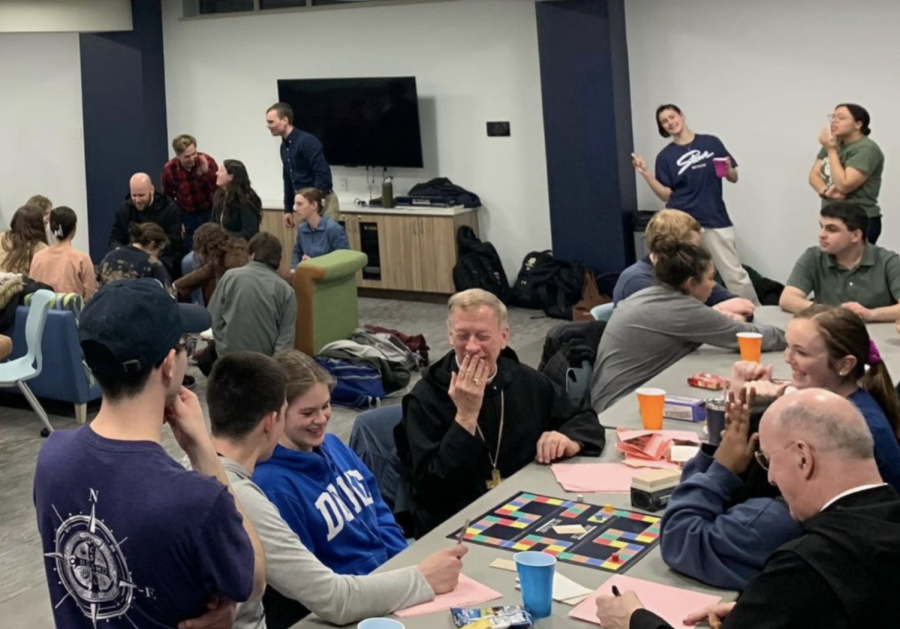The challenges and merits of conversation in our relationships
It is important to create spaces that foster respectful, uplifting conversations. (Courtesy / Campus Ministry)
April 20, 2023
I’m sure many of us have heard the old adage, “A good relationship starts with good communication.” However, in our culture, it seems that good communication is being thrown out the door, leading to a concerning trend that has really developed over the past decade. Simply put, we don’t know how to communicate with one another anymore.
Let me give you a few examples to pinpoint this principle. It is easier to get an RA to ask a neighbor to quiet down late at night than to ask them ourselves. It is easier to talk about a problem at work to co-workers or friends than to talk to our boss or share our frustrations. It is easier to talk to a close friend about a problem you are having with another friend than it is to talk to the person you’re having a problem with in the first place. And if you have read the Crier this year, it is far easier to write an opinion piece in the Saint Anselm Crier about something controversial than to talk to the person or group you may be mentioning in the first place.
In all of these scenarios, we generally like to take the easier route out, which is at the root of the problem. Instead of encouraging others or speaking out against problems, we “murmur” to use the words of St. Benedict in the Rule. We gossip, give into pride, and harm members of our community. The biggest problem is that a lack of communication leads to the breakdown of community, resulting in greater polarity, stigmatization, and more toxic cliques among certain groups of people.
I believe that our proneness to poor communication can be attributed to numerous other issues. There’s the social media crisis that is impacting a majority of our population. While phones are great, they also disconnect us from seeing others as people. Therefore, it becomes extremely easy to type up a very strong, ad-hominem fueled opinion about a controversial topic. There’s also the struggles of returning to face-to-face communication from the pandemic, when we mainly communicated over Zoom, FaceTime, text messages, or emails. And we can’t forget about how busy life has gotten since coming out of the coronavirus pandemic.
However, I think the biggest issue and one most people would agree with is that having these kinds of conversations can be difficult and extremely uncomfortable. Having an in-person conversation requires us to see the other for who they are, to be careful with our words, and to know that we may not change their minds by the end.
Today, I want to challenge us to have these hard conversations. A major part of the liberal arts experience is embracing the uncomfortable, the challenging, and new perspectives on topics we may or may not be passionate about. Let’s embrace all these things by having conversations instead of taking the easy way out. As members of this community, it is our responsibility to continue to encourage these conversations to take place and to come into them with an open heart and mind.



